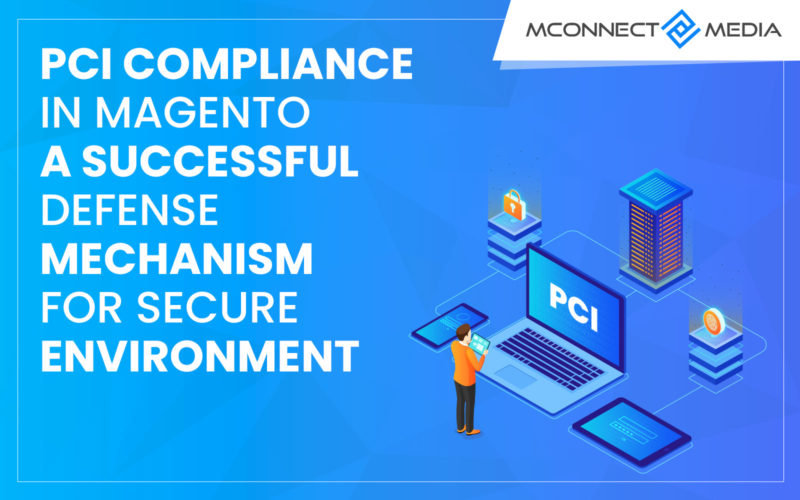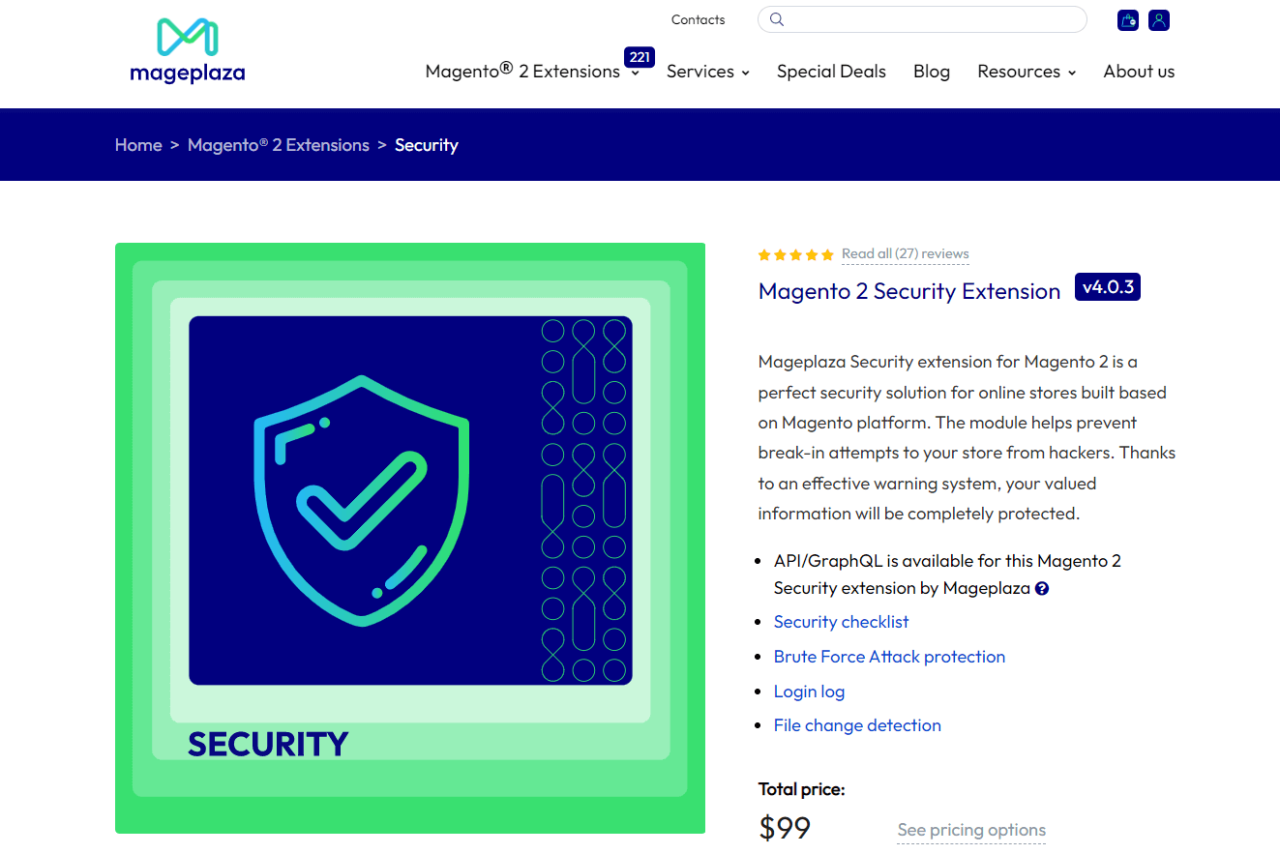Magento Store Security for Insurance Compliance: Safeguarding Your Online Business

In today's digital landscape, ensuring Magento store security for insurance compliance is paramount for safeguarding sensitive data and meeting regulatory standards. Let's delve into the crucial aspects of protecting your online business and customer information with best practices and compliance measures.
As we explore the key components of security, encryption, data protection, and incident response, you'll gain valuable insights into fortifying your Magento store against potential threats and vulnerabilities.
Overview of Magento Store Security for Insurance Compliance

Magento store security plays a crucial role in ensuring compliance with insurance standards. By implementing robust security measures, businesses can protect sensitive data and prevent cyber threats.
Importance of Insurance Compliance
- Compliance with insurance regulations is essential for protecting customer data and maintaining trust.
- Failure to comply with security measures can result in data breaches, financial losses, and reputational damage.
Potential Risks of Non-Compliance
- Loss of customer trust and loyalty
- Legal penalties and fines
- Data breaches leading to financial losses
Examples of Insurance Compliance Regulations
- Payment Card Industry Data Security Standard (PCI DSS)
- General Data Protection Regulation (GDPR)
- Health Insurance Portability and Accountability Act (HIPAA)
Consequences of Failing to Adhere to Compliance Requirements
- Data breaches exposing sensitive customer information
- Lawsuits and legal actions
- Loss of business and revenue
Security Measures for Magento Stores

When it comes to securing Magento stores for insurance compliance, there are several best practices that should be followed to ensure the protection of sensitive data.
Role of Encryption in Data Security
Encryption plays a crucial role in safeguarding data on Magento stores. By encrypting data, information such as customer details, payment information, and other sensitive data is scrambled into an unreadable format, making it nearly impossible for unauthorized parties to access or decipher.
Implementing strong encryption protocols such as SSL/TLS can help protect data transmission over the internet, ensuring that information is secure during online transactions.
Regular Security Audits and Vulnerability Assessments
Regular security audits and vulnerability assessments are essential to identify and address any potential weaknesses in the Magento store's security infrastructure. By conducting these assessments periodically, businesses can stay ahead of emerging threats and ensure that their systems are up to date with the latest security measures.
Implementing Secure Payment Gateways
Implementing secure payment gateways is crucial for insurance compliance as it ensures that customer payment information is handled securely and in accordance with industry regulations. Secure payment gateways encrypt payment data during transactions, reducing the risk of data breaches and fraud.
Data Protection and Privacy Compliance

Ensuring data protection and privacy compliance is crucial for Magento stores, especially when dealing with sensitive customer information. Compliance with regulations such as GDPR is essential to maintain trust and security.
Measures for Protecting Customer Data
- Implement encryption protocols to safeguard data during transmission and storage.
- Regularly update security patches and software to prevent vulnerabilities.
- Utilize strong authentication methods like two-factor authentication to control access.
- Regularly conduct security audits and assessments to identify and address any weaknesses.
GDPR and Data Protection Regulations
- GDPR (General Data Protection Regulation) sets guidelines for the collection, processing, and storage of personal data.
- Other regulations like CCPA (California Consumer Privacy Act) also impact how customer data is handled.
- Compliance with these regulations is necessary to avoid penalties and maintain customer trust.
Data Minimization and Security
Data minimization involves collecting and storing only the necessary data required for business purposes, reducing the risk of data breaches.
Examples of Data Privacy Policies
- Clearly Artikel the types of data collected and how it will be used.
- Provide opt-in mechanisms for customers to consent to data processing.
- Detail security measures in place to protect customer data from unauthorized access.
Incident Response and Recovery Plans
Incident response and recovery plans are crucial components of a comprehensive security strategy for Magento stores. These plans Artikel the steps to be taken in the event of a security breach or incident to minimize damage and ensure a swift recovery.
Components of an Effective Incident Response Plan
An effective incident response plan for Magento stores should include the following components:
- Designating a response team with clearly defined roles and responsibilities.
- Establishing communication protocols to ensure timely and accurate information sharing.
- Creating a detailed incident response playbook with step-by-step procedures for different types of security incidents.
- Implementing monitoring tools and alert systems to quickly detect and respond to security threats.
Importance of Regularly Testing Incident Response Procedures
Regularly testing incident response procedures is essential to ensure their effectiveness in a real-world scenario. Testing helps identify any gaps or weaknesses in the plan, allowing for adjustments and improvements before an actual security incident occurs.
Role of Backups and Disaster Recovery Plans
Backups and disaster recovery plans play a critical role in mitigating security incidents by enabling the restoration of systems and data in the event of a breach. Regularly backing up data and having a solid disaster recovery plan in place can help minimize downtime and ensure business continuity.
Examples of Successful Incident Response and Recovery Strategies in Insurance Compliance
Successful incident response and recovery strategies in insurance compliance involve swift detection and containment of security incidents, thorough investigation to determine the root cause, and proactive measures to prevent future breaches. Implementing robust security measures, conducting regular security audits, and having a well-defined incident response plan are key factors in achieving successful outcomes in insurance compliance.
Outcome Summary
As we conclude our discussion on Magento Store Security for Insurance Compliance, remember that a proactive approach to security not only protects your business but also fosters trust with your customers. By implementing robust security measures and staying abreast of compliance regulations, you can navigate the digital landscape with confidence and resilience.
FAQ Compilation
What are the consequences of failing to adhere to insurance compliance requirements?
Failure to comply with insurance regulations can result in hefty fines, legal consequences, damage to reputation, and potential data breaches.
How can encryption ensure data security in Magento stores?
Encryption converts sensitive data into a secure format, making it unreadable to unauthorized users and enhancing overall data protection.
What role do backups and disaster recovery plans play in incident response for Magento stores?
Backups and disaster recovery plans are essential for restoring data in the event of a security incident, ensuring business continuity and minimizing downtime.

